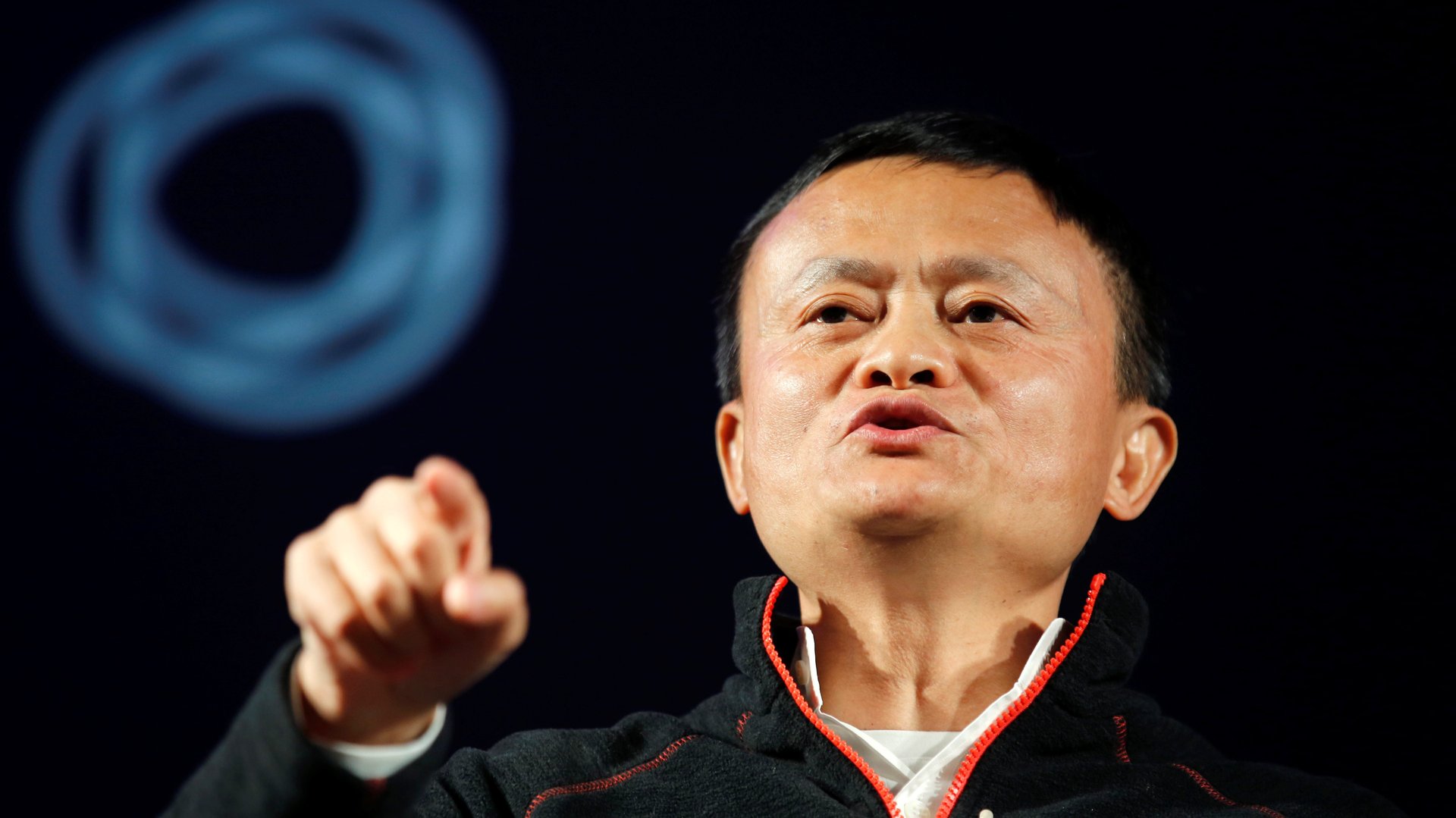For Jack Ma, the ultimate test of leadership was making himself replaceable
Just days after the New York Times ignited intense speculation (paywall) that Jack Ma was retiring imminently as chairman of e-commerce giant Alibaba, Ma today (Sept. 10) announced that he would step down exactly a year from now, with CEO Daniel Zhang succeeding him.


Just days after the New York Times ignited intense speculation (paywall) that Jack Ma was retiring imminently as chairman of e-commerce giant Alibaba, Ma today (Sept. 10) announced that he would step down exactly a year from now, with CEO Daniel Zhang succeeding him.
In a letter, Ma said this step was the culmination of a decade of effort to make sure the company had graduated from being centered around one individual to having a broad-based culture of excellence and talent development. Ma will remain on the board of directors until 2020, and after that will continue to be a part of the Alibaba Partnership, a group of top executives that aims to preserve the business’s founding culture while incorporating new leadership.
“We believe the 12-month time frame would enable a smooth transition with lower ‘key man risk,’” wrote Jefferies equity analysts in a research note following the announcement. “We believe by retaining a permanent role in Alibaba Partnership, Jack Ma will maintain an influential role in the company’s culture and ecosystem despite his reduced day-to-day operational role.”
The move comes after Alibaba last month disclosed that it will change the holding structure for its “variable interest entities,” or VIEs, set up to allow companies to list abroad while ensuring that key assets are held by Chinese companies, as required by local law. Instead of being largely held by Ma and other individuals, the VIEs will be turned over to holding companies controlled by a group of executives, a change the Economist says (paywall) will also substantially reduce the company’s “key man” risk.
By controlling the circumstances of his departure, Ma’s cushioning his company against the shock that would result if he were to step down as a result of an unforeseen situation, such as a health crisis or unexpected accident, as befell the chairman of Chinese travel conglomerate HNA, which is in the middle of a restructuring.
Zhang has had ample time to be tested, having joined Alibaba as chief financial officer of Taobao Marketplace in 2007. Two years later, he was the brains behind the Black Friday-inspired Singles’ Day, now the biggest one-day shopping extravaganza in the world. In 2015, Zhang took over as CEO, while Ma retained the chairman role.
Like Alibaba—or many US tech firms for that matter—Chinese companies are often associated with a charismatic “key man” (it’s usually a man) who has a singular ability to raise up or cast down his firm’s fortunes. But unlike in the US or Europe, it’s not uncommon in China for a top executive to suddenly become mysteriously unreachable—especially in the last few years as China has reined in financial risk-taking companies that were once symbols of the country’s expanding economic reach abroad.
Nor are Chinese leaders and their companies only at risk from law enforcement in their own country, as shown by the example of Richard Liu, CEO of e-commerce firm JD.com, who was arrested in Minnesota last month on rape allegations. He has since been released without being charged, but investors in the company remain on edge.
Reuters columnist Katrina Hamlin wrote last month that “in a country where relationships are especially important, companies are often overdependent on one or two key individuals. China’s lenders are aware; their contracts sometimes include clauses requiring a payoff if a VIP departs.” And as Hamlin noted, in August, a casino operator lost half its value when it couldn’t find its chairman, while a car-parts company found itself in a similar situation.
While such a scenario seems highly unlikely for Ma, an ambassador of sorts for China’s soft power, he’s clearly worked hard to make himself replaceable against the backdrop of a variable and often harsh business climate. That’s in the best interest of his company—and an example other Chinese giants should emulate.